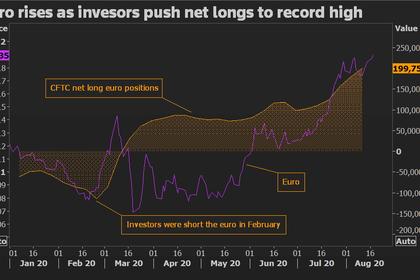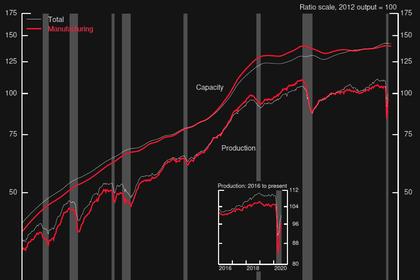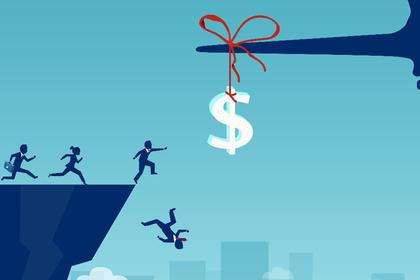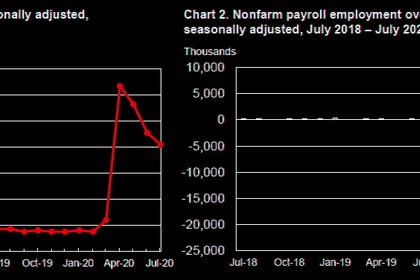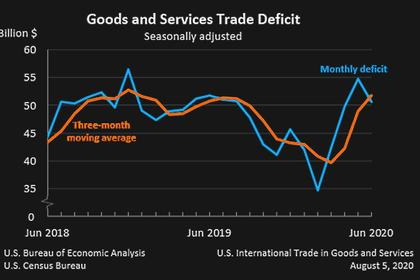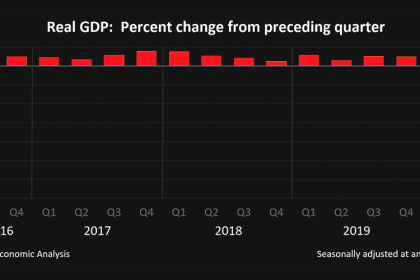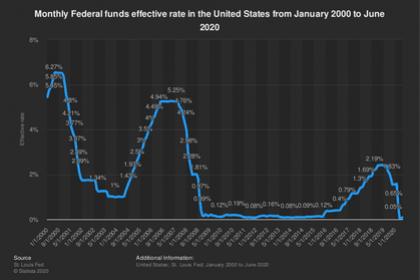
U.S. ECONOMY RECESSION
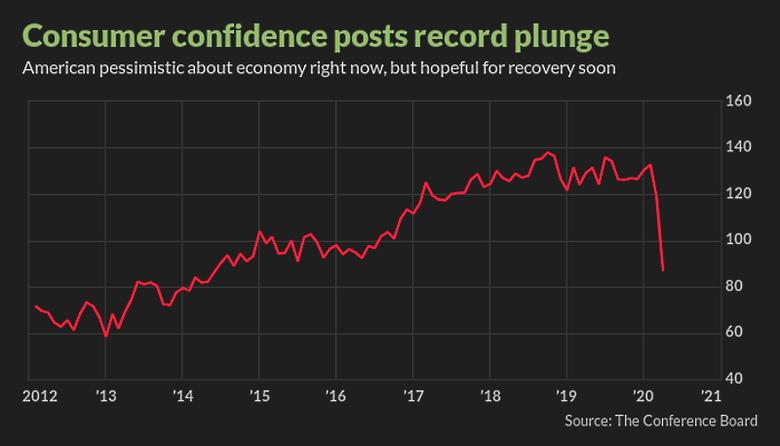
REUTERS - AUGUST 25, 2020 - U.S. consumer confidence dropped to a more than six-year low in August as households worried about the labor market and incomes, casting doubts on the sustainability of the economy's recovery from the COVID-19 recession.
The second straight monthly decrease in consumer confidence reported by the Conference Board on Tuesday overshadowed an acceleration in new single-family home sales to a more than 13-1/2-year high in July. The housing market continues to show strong immunity to the coronavirus crisis.
The ebb in confidence followed the expiration of a $600 weekly unemployment benefit supplement on July 31 and a flare-up in new coronavirus infections across the country, which forced some jurisdictions to shut down businesses again or pause reopenings. Though new cases have subsided, hot spots remain.
“Today’s data are telling us that while some lucky workers are able to buy new homes, millions of others are unable to afford life’s necessities and pay the rent especially after the federal government canceled those $600 checks,” said Chris Rupkey, chief economist at MUFG in New York. “The consumer is the most worried they have been all year which pours cold water on the idea that the economic recovery is sustainable.”
The Conference Board said its consumer confidence index dropped to a reading of 84.8 this month, the lowest since May 2014, from 91.7 in July. Economists polled by Reuters had forecast the index edging up to a reading of 93 in August.
The survey’s present situation measure, based on consumers’ assessment of current business and labor market conditions, tumbled to a reading of 84.2 this month from 95.9 in July. The expectations index based on consumers’ short-term outlook for income, business and labor market conditions dropped to 85.2 from a reading of 88.9 in July.
The survey’s so-called labor market differential, derived from data on respondents’ views on whether jobs are plentiful or hard to get, deteriorated to a reading of -3.7 this month from 2.2 in July. That measure closely correlates to the unemployment rate in the Labor Department’s employment report.
It has dropped from as high as 38.3 in August last year, and fits in with views that the labor market recovery is losing speed after nonfarm payrolls increased by 1.763 million jobs in July after a record jump of 4.791 million in June.
The share of consumers expecting an increase in income fell to 12.7% this month from 14.8% in July and the proportion anticipating a drop increased to 16.6% from 15.8% last month.
The weekly unemployment supplement has been cut to $300. Economists estimate the reduced unemployment benefits will slash about $50 billion from retail sales in August and restrain consumer spending, the main driver of the economy.
"We are clearly in the second phase of the recovery, driven by underlying fundamentals rather than purely the surge in activity as household reengaged," said James Knightley, chief international economist at ING in New York. "This reinforces our view that a V-shaped recovery will not happen, the U.S. economy is unlikely to recover all of its lost output until mid-2022."
The economy slipped into recession in February. Gross domestic product contracted in the second quarter at its steepest pace in at least 73 years.
Stocks on Wall Street were mixed after a three-day rally. The dollar fell against a basket of currencies. U.S. Treasury prices were down.
HOUSING SHINES
In a separate report on Tuesday, the Commerce Department said new home sales rose 13.9% to a seasonally adjusted annual rate of 901,000 units last month, the highest level since December 2006. New home sales are counted at the signing of a contract, making them a leading housing market indicator.
Economists had forecast new home sales, which account for about 13% of housing market sales, gaining 1.3% to a rate of 785,000-units. The housing market is being powered by record low interest rates and a migration to low-density residential areas as companies allow employees to work from home.
Data last week showed a record jump in sales of previously owned homes in July. Homebuilding and permits also soared last month, while confidence among homebuilders increased in August to the highest level since December 1998.
At least 28 million people are on unemployment benefits. Economists, however, say unemployment has disproportionately affected low-wage workers, who are typically renters.
In July, new home sales increased in the Midwest, South and West. They fell in the Northeast. The median new house price increased 7.2% to $330,600 in July from a year ago.
There were 299,000 new homes on the market, down from 304,000 in June. At July’s sales pace it would take 4.0 months to clear the supply of houses on the market, down from 4.6 months in June.
“Given most people who can afford a new home are higher-paid workers who still have their jobs, we should expect this trend to continue,” said Robert Frick, corporate economist at Navy Federal Credit Union in Vienna, Virginia.
-----
Earlier:
